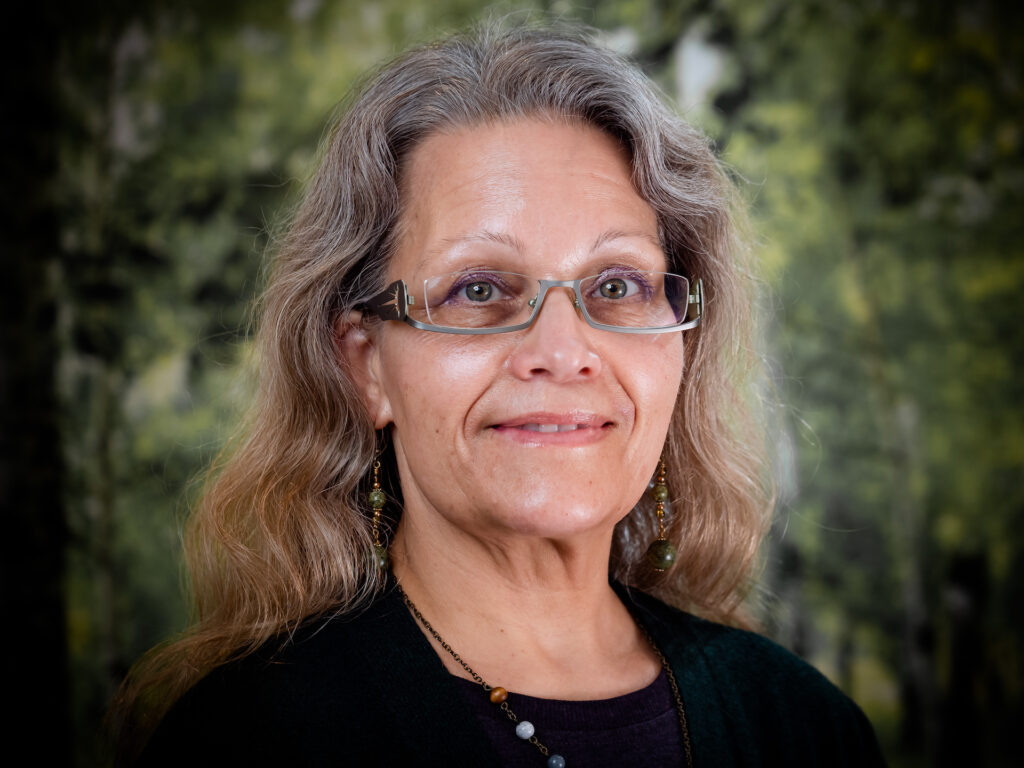
30 years in England, a background in Mental Health and Addictions, and a desire to move to Powell River. These are the beginnings of Monique’s journey to Sunshine Coast Health Centre.
After a bit of research into her options for work here in Powell River, Monique discovered Sunshine Coast Health Centre (SCHC). Upon her discovery of SCHC, she thought that it would be an interesting place to check out when she arrived, albeit, there were a couple of stepping-stones before she gained the confidence to inquire about how she would fit into the team. Starting in Client Services nearly 3 years ago as a Case Manager, Monique found a setting where she could flourish. Client Services is our frontline staff team here at SCHC, they answer any and all questions that the clients might have, they develop close relationships with the clients, and are uniquely involved in each client’s course at SCHC.
You will notice a trend in my stories, change is brewing. I recognize this as an admirable quality that is continually encouraged here; if there is a want or need for change it is supported to help fit the employee and the company. Monique has embarked on her own changes, transitioning from Client Services into the Medical Department. In the time I spent getting to know her, I consider this to be a good fit for her. While her job title remains similar, Monique’s job description is evolving. Her leadership is gaining more holistic importance. In addition to the good work she has previously done, Monique is now leading the Dialectical Behaviour Therapy curriculum at SCHC, which includes weekly workshops and 1-on-1 review and coaching sessions.
Dialectical Behaviour Therapy (DBT)
Dialectical Behaviour Therapy (DBT), which has grown from Cognitive Behavioural Therapy (CBT), was initially started as something to use with people who suffered serious emotion regulation problems and people whose responses to life are out of proportion to what might be needed during that moment. Those with severe borderline personality traits or the tendency to engage in self-harm/parasuicidal behaviours were the primary demographics that DBT was designed for, but over time it has been looked at more for skills training in a broader demographic. It turns out that DBT is extremely beneficial for so many more people than originally perceived. Monique offers a modified version of DBT, focused on teaching the skills of the formal DBT program, which is more of a psychotherapy approach that takes nearly a whole year to complete. Monique delivers a modified 4-week program to suit the needs of our clients who are often only here for a month-long stay.
Every week the workshop is dedicated to one of the 4 skill sets:
- Mindfulness
Mindfulness underpins everything and an exercise is practiced during every session. - Distress Tolerance
When life is distressing, how can you tolerate it rather than avoid or run away from it? - Emotion Regulations
You’re getting what it says on the tin, regulate your emotions so you can access whatever is appropriate for the situation/challenge. - Interpersonal Effectiveness
How to be more effective in your relationships with other people, whether personal/intimate relationships, friendships, family, work or the public.
Together the four of these skill sets make up a much larger tool kit, designed to aid you in your actions and reactions.
Post-Treatment Planning
Monique also still facilitates 1-on-1 Post Treatment Planning sessions with the clients. Post-treatment Planning involves a myriad of factors, including, but not limited to, inquiring about different meetings or groups in the client’s hometown that may be beneficial to their recovery, securing a physician for those who don’t already have one, finding counselling services available to them, or obtaining a gym membership. These are all beneficial supports that ensure an easier transition upon returning home and leaving treatment. One of the many levels of care offered through Sunshine Coast Health Centre, in my opinion, sets us apart from other facilities; ongoing care is essential and not overlooked.
Successes
One of the greatest bits of feedback Monique has received for her DBT workshop is from a client who had heard of DBT but thought that it wasn’t fit for him. This particular client didn’t believe it was needed or that it could help him. After a few classes, he was blown away by the tools and skills he was acquiring. He embraced the exploration of a new way to react to life’s many challenges, an underpinning theme that applies to a diverse range of clients’ lives, or those of their loved ones. These are key tools that the clients will take home and share with their families and friends, as well as practice in the outer world. Monique’s academic understanding of DBT moulded into more practical wisdom and working at SCHC has granted her the opportunity to integrate the skills she coaches into her own life.
During her instruction she dug deeper into her own reactions, addressing her own struggles with food, eating, and weight. Not in a daily struggle, but more of an ever-present background issue. Through her our work with DBT, Monique now has a healthier relationship with herself, with a notable impact on her body image and mental health. Learning more about the whys and wherefores of how addictions come to life has been a driving force in getting to where she wants to be. Monique celebrates SCHC as one of the driving forces in her own journey, offering thanks for allowing her to grow as a facilitator and to adapt her coaching into her own practice.
Through applied practical exercises, clients and staff alike are developing a keen sense of mindfulness, and an awareness of their actions and reactions around life’s biggest challenges.



